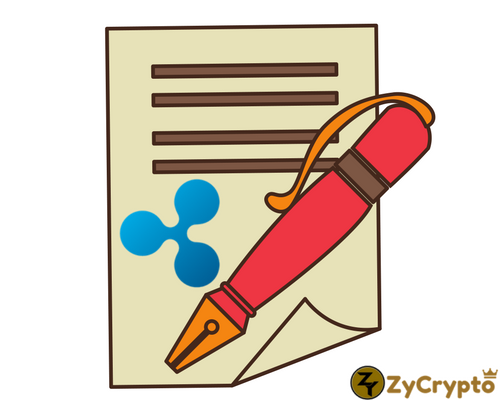Ripple continues to consolidate itself as the best solution to facilitate bank payments based on blockchain technology. Yesterday, its executives scored another victory (and very important one) after sealing a deal with the Central Bank of Saudi Arabia (SAMA) helping banks in the Kingdom of Saudi Arabia to improve their payments infrastructure using xCurrent.
This business is of special importance for Ripple because it implies its acceptance at a global level in a whole country, in addition to providing legitimacy to an ecosystem where the rule is for governments to speak out against the use of blockchain technologies. Also, having the support of an oil giant such as Saudi Arabia gives Ripple a significant level of credibility to expand to other countries, in addition to the large sums of money that such a contract can represent.
Likewise, although previously, executives of Ripple declared on some interviews what could be seen as a disengage from traditional cryptocurrencies, the potential that can represent a news like this is something to be noted since the SWIFT system is beginning to give way to the use of blockchain technologies. Even when XRP is a centralized cryptocurrency, it is good news for the blockchain ecosystem, bringing it closer to its global adoption.
The deal with Ripple will allow users of financial services in Saudi Arabia to perform national and international transactions in a faster, cheaper and more transparent way. In the same way, banks will have access to all financial institutions in RippleNet.
This initiative follows a successful test by the British Central Bank. In this regard, Dilip Rao, the global head of infrastructure innovation at Ripple said:
“Central banks around the world are leaning into blockchain technology in recognition of how to transform cross-border payments, resulting in lower barriers to trade and commerce for both corporates and consumers (…) SAMA is leading the charge as the first central bank to provide resources to domestic banks that want to enable instant payments using Ripple’s innovative blockchain solution.”
With this move, Ripple scores over 100 financial institutions connected via RippleNet, among which American Express, Bank of America, Merrill Lynch, Santander, Standard Chartered, Bexs Bank, and Western Union (one of the most joined companies).
The Saudi central bank is working with the United Arab Emirates Central Bank to issue a digital currency that would be accepted between the two countries. This work began last year and could perhaps allow an expansion of cryptocurrencies as and accepted and reliable means of payment in the Arab region.






